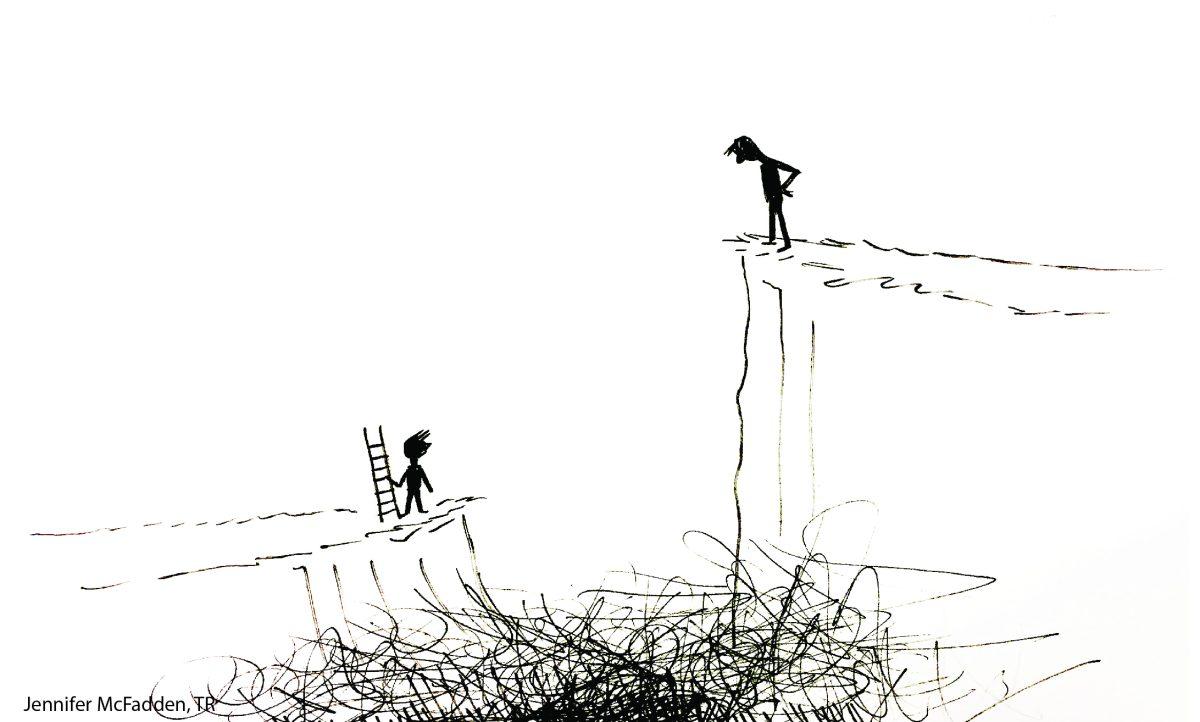Debates over inequality have made a powerful surge in American politics in the past couple of years. Politicians like Vermont Senator Bernie Sanders have become recognized for their stances on what we should do to address the increasing inequality in America’s economy.
Plenty of people have shared their enlightened opinions on how to tackle these issues, and most proposals have dealt with changes to the tax code or expanding Social Security.
While these conversations are important, I think there is evidence the changes we have experienced are going to get worse, and it will not be due to issues like the reformation of the tax code.
On Oct. 24, the United States Bureau of Labor Statistics published their report on employment projections for the next decade, and their analysis contained some intriguing forecasts for American job growth. While the BLS obviously cannot predict every nuance and small adjustment in the labor market, they are quite skilled at predicting trends, which is what we are considering with this breakdown.
According to the report, roughly nine out of every 10 new jobs will be in the service-providing sector, with healthcare support and personal care being the two fastest growing occupational fields.
Outside of the quickly growing healthcare and personal service fields, jobs related to computers and mathematics are also projected to have rapid growth. Although this confirms the importance of STEM education we have heard about in the past few years, it also reveals something important about the changing nature of our economy. While many of the jobs included in these categories do pay out high wages, there are also a good number of jobs in them which do not.
Jed Kolko, the chief economist for Indeed, pointed out this contrast in a piece he wrote for their hiring lab. He broke down the occupational growth rates into quintiles by median annual wage. He found the top and bottom quintiles are projected to grow the most over the next decade, at 11 percent and 8.8 percent, respectively.
Now you are saying to yourselves ‘Thanks, nerd, I have no idea what that means,’ I will break it down for you. Basically, jobs with very high wages and jobs with very low wages are forecasted to grow the most over the next 10 years.
In my opinion, this could have huge consequences for the recently raging inequality debate. For all of the talk about restoring the American middle class, it does not look as if there will be many middle-wage jobs created over the coming years.
There are a variety of reasons for this, stretching from globalization to technological change. The best example to illustrate this is the growth of the e-commerce sector.
According to Derek Thompson from The Atlantic, in the past two years, the retail sector in the U.S. has shed about 120,000 jobs. This is in large part due to the growth of e-commerce, which seems to be replacing many brick and mortar stores, and consequently, the jobs in those stores.
Middle-wage jobs in the retail sector will likely continue to decline. Although this does not completely explain the disappearance of middle-class jobs, it is certainly one powerful factor.
A final area in which we can examine the effects of the changing labor market on inequality lies in geography.
In his article, Kolko analyses how the geographic distribution of jobs will look for the future. He notes most of the projected job growth will occur in big, dense cities, while small cities and rural areas are projected to grow at the slowest pace.
This disparity will likely just expound the urban-rural divide we have seen begin to grow, due to the uneven economic growth across the country. This divide is a major factor in discussions about inequality, and these projections do not suggest the problem is going away anytime soon.
I wish I could say I am more hopeful about this situation, but I simply do not see America’s inequality problem coming to a rest anytime soon. With the way our workforce and economy are changing, we are going to see more high-paying and low-paying jobs, with fewer middle-class positions. Combining this with the urban versus rural disparity, we are likely going to see our country become even more unequal over the coming decades.
We can wait and see what this means for our politics, but I for one anticipate this becoming a point of increasing tension among all Americans.
America is becoming increasingly unequal
Donate to The Reflector
Your donation will support the student journalists of Mississippi State University. Your contribution will allow us to purchase equipment and cover our annual website hosting costs.





















































































